For years we Mexicans have been taught about the three great muralists of Mexico: Diego Rivera, Clemente Orozco and Alfaro Siqueiros. However, after traveling through various parts of the country I have discovered that they have not been the only ones to paint the walls.
These are some photographs that I have taken of various murals around Mexico that are as, or more beautiful, than those of “the big three”.
It is worth mentioning that Mexican muralism was an artistic trend that was born in the roaring 20’s with the idea of educating Mexicans through painting. That is why many are quite playful, they play with history and fascinate for their optical effects. Here is a sample of how colorful Mexican walls are.
Goverment Palace at Tlaxcala
Prehispanic period of Tlaxcala (1967)
Desiderio Hernández
The story goes that when the indigenous Desiderio tried to see Diego Rivera’s murals in Mexico City, a racist guide stopped him. That is why Desiderio created his own with the help of the Tlaxcala government.
Anthropology National Museum (Origins Hall)
Las Razas / The Races (1964)
Jorge González Camarena
Hotel Posada La Misión
Cuauhtémoc Redivivo (1956)
Juan O’Gorman
O’Gorman created this mural in honor of the Aztec emperor Cuauhtémoc whose remains had supposedly been found near the heavenly town of Taxco. Later it was learned that the remains were false.
Guadalajara subway
Inside the Guadalajara light rail there are several scenes from the history of the city captured with ceramics on the platforms.
Francisco Villa Museum
Mexiquense Cultural Center
Tlatelolco: lugar de sacrificio / Tlatelolco: place of sacrifice (1989)
Arnold Belkin
Arnold Belking started the mural in 1982 around the 1968 Tlatelolco massacre. Because it was a subject still censored by the state, he presented it until 1989 when he managed to gather photos and information from those who survived the event.
Taxco City Council
La fiesta de Taxco / Taxco Fiesta (1960)
Luciano Cabrera
Central Library of Toluca
Cosmogonía Nahuatl / Nahuatl cosmogony (1987)
Luis Nishizawa
With the help of Metepec clay, Luis Nishizawa created several ceramic murals.
Mexico City subway
Del códice al mural (1987)
Guillermo Ceniceros
This mural tells the myth of Aztlán’s journey to the founding of Tenochtitlán. When people change from one train to another, the steps they take at the station guide them through the mythical history.
Anthropology National Museum (South Hall)
Mural para la sala de los pueblos del sur (1964)
Arturo García Bustos
Anthropology National Museum (Maya Hall)
El mágico mundo de los mayas / The mayans magic world (1964)
Leonora Carrington
When the surrealist easel painter Leonora Carrington was commissioned a work that would form part of the informative material in the Mayan hall of the Museum of Anthropology, she investigated the myths and legends of the indigenous people of the region. The result was the only mural she ever painted in her entire life.
National Autonomous University of Mexico
La conquista de la energía / The Conquest of Energy (1953)
José Chávez Morado
SCOP Center
Canto a la patria / Sing to the homeland (1953)
Juan O’Gorman
The SCOP center was built on all its facades with colored pebbles. Each pebble has a number in case it falls, it is known where it was going. It tells the history of telecommunications in Mexico according to the advanced technology of the 1950s.
Goverment Palace of Zacatecas
History of Zacatecas (1970)
Antonio Pintor
Conspirators Museum at Querétaro
Defensa de la Madre Patria / Defense of the Motherland (2015)
Gonzálo García and Tania Quezada
While living in this house, Tania and Gonzálo, with the help of various artist friends, painted the history of the Mexican conspiracy for independence. All in pastel tones and decorated as if you were entering a house of European imperial decadence.
Secretary of Public Education
Ecuación en acero / Equation in steel 2010
Manuel Felguérez
Medical Center S.XXI
Homenaje al rescate / Tribute to the rescue (1989)
José Chávez Morado
This mural represents the rescue of the survivors of the 1985 earthquake where several buildings collapsed at this very point.
Antonieta Rivas Auditorium
Experiencia KINECT (2012)
Dr. Lakra
When this mural was inaugurated, there was a mobile application that allowed us to see it in motion and know its apocalyptic meanings.
Newspaper library Lerdo de Tejada
La revolución y sus elementos / The revolution and its elements (1982)
Vlady
The newspaper library was previously a Catholic temple. The mural speaks of the history of world revolutions and encompasses the entire building, which is why they call it “the Sistine Chapel of Revolutions”
Supreme Court of Justice
Los siete crímenes mayores del estado / The seven major crimes of the state (2009)
Rafael Cauduro
To criticize government corruption, this mural was painted on the steps of the Palace of Justice. Each floor represents a crime. The judges usually avoid going through there, since kidnappings, rapes, attacks, murders and the suspended file cabinets are shown courtesy of the Mexican justice system.
Park of the old train station to Cuernavaca
Viaje del siglo XX / 20th century journey (2006)
Ariosto Otero
Aguascalientes Palace
Feria de San Marcos (1961)
Osvaldo Barra
This controversial mural at the time of being inaugurated, caused outrage. To portray the famous Feria de San Marcos, Osvaldo did not omit details, so he included a prostitute and a famous restaurant where homosexuals used to meet. A radical group tried to destroy it because they said “that” did not exist in the city.
Queretaro House
Escudo patrio (2015)
Victor Cauduro
Specialty Hospital
Evolución y futuro de la ciencia médica en México / Evolution and future of medical science in Mexico (1958)
Chávez Morado brothers
Mexico City Metro
London Underground (1990)
Rafael Cauduro
Mormon Temple Museum and Visitor Center
Christ among the pre-Hispanic Indians (¿1983?)
Unknown artist
This mural with Christ appearing among the Mayan and Aztec ruins, is located next to the Church of Jesus Christ of Latter-day Saints. The temple in Mexico is the only Mormon temple built with pre-Hispanic decorations and frets.
Gallery of the Ministry of Finance
El quijote, mensaje oportuno / Don Quixote, a timely message (1981)
Benito Messenger
CDMX International Airport
La conquista del aire por el hombre / The conquest of the air by man (1938)
Juan O’Gorman
The mural that shows the great advances of aviation until 1938 was a gift that Juan O’Gorman made to his friend Frida Khalo.
Goverment Palace of Querétaro
La Reforma / Reforma war (2015)
Víctor Cauduro
Lottery Building
El juego de la fortuna / Fortune game (2010)
Ariosto Otero
Only by looking at the details of the mural, it is possible to discover that it is made with lottery tickets, gambling machines, fortune wheels and games of chance stuck to the wall.
Divino Redentor Church
Divino Redentor / Christ redeemer (¿1956?)
Unknown artist
Zona Rosa Street
El estudio del pintor / Artist studio (1993)
José Luis Cuevas
In this same place the painter José Luis Cuevas revealed his “ephemeral mural” in 1967. Thus he challenged the great muralists to forget ideologies and stop seeing muralism as something perpetual, hegemonic and permanent. The mural was destroyed after a week of exhibition and is still considered by critics as the end of the Mexican muralist movement.
Ironically, years later he inaugurated a tiny mural here that represents him in his studio…
Mexicans really love murals…

 Dark Mode
Dark Mode 

 No fees, cancel anytime
No fees, cancel anytime 


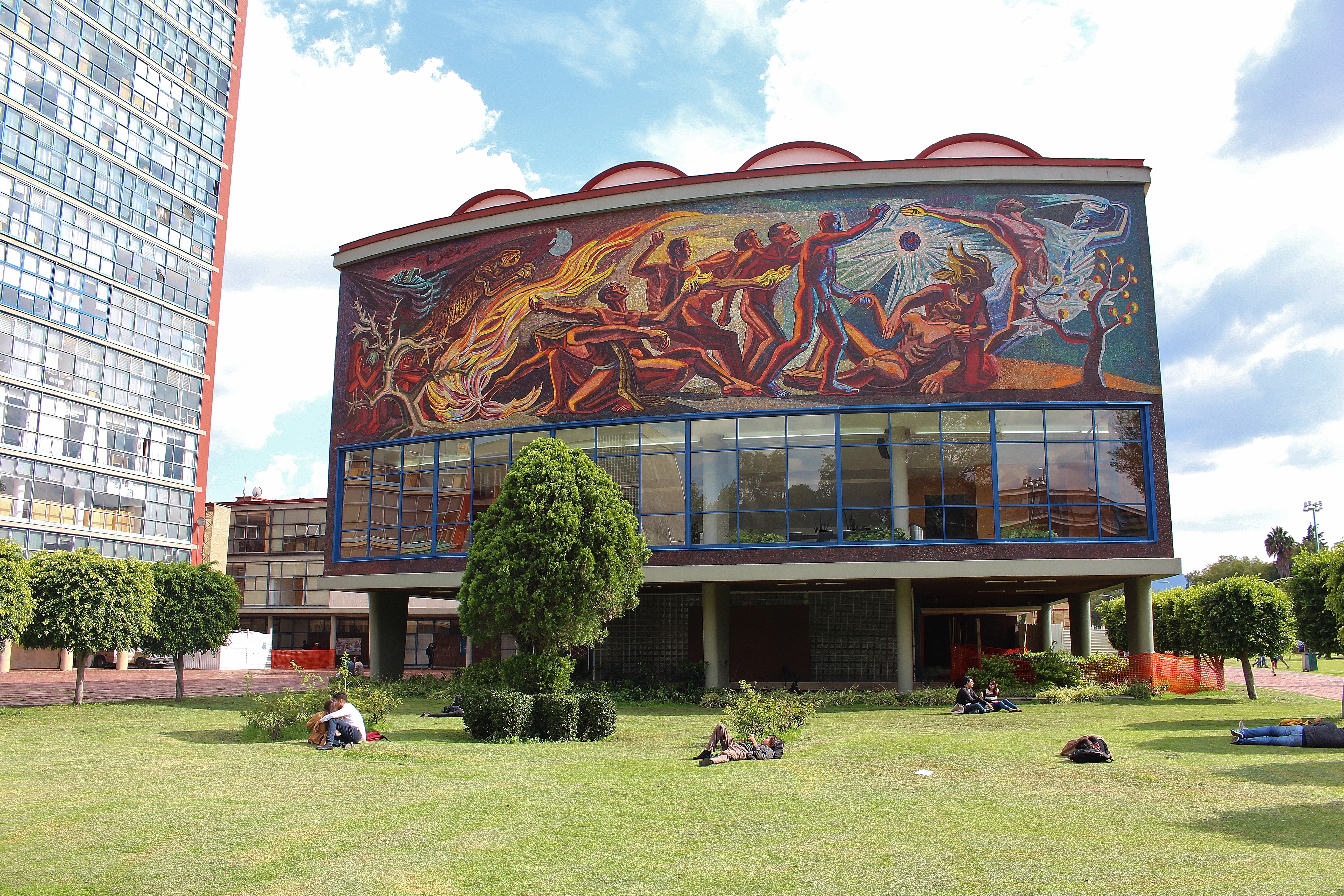
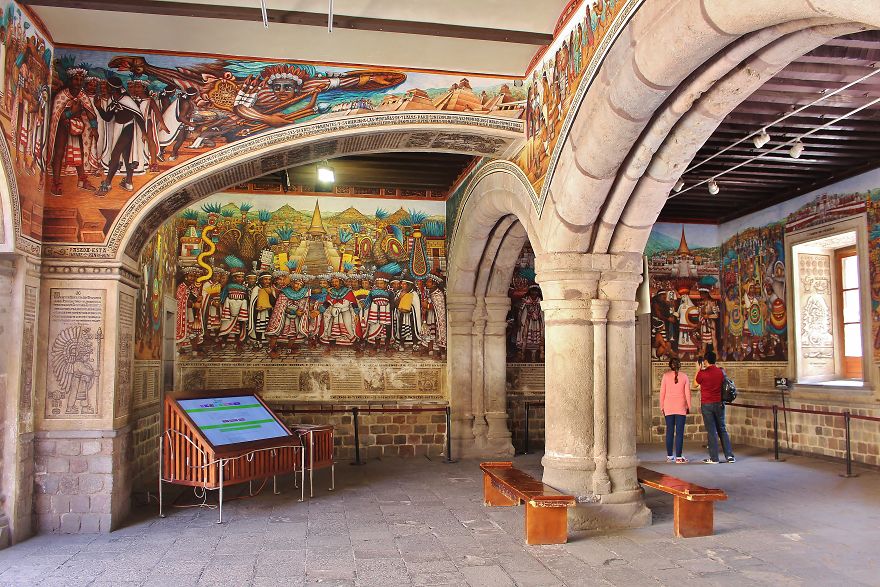
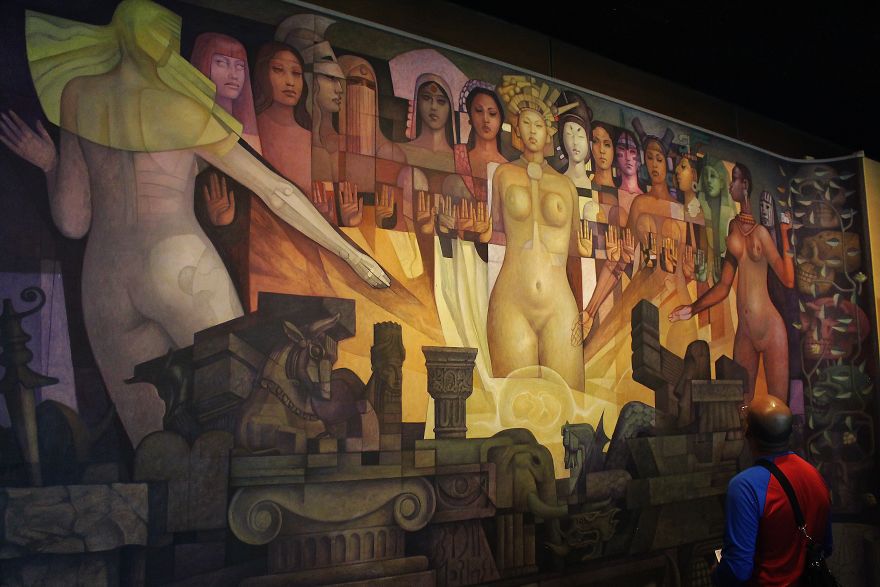
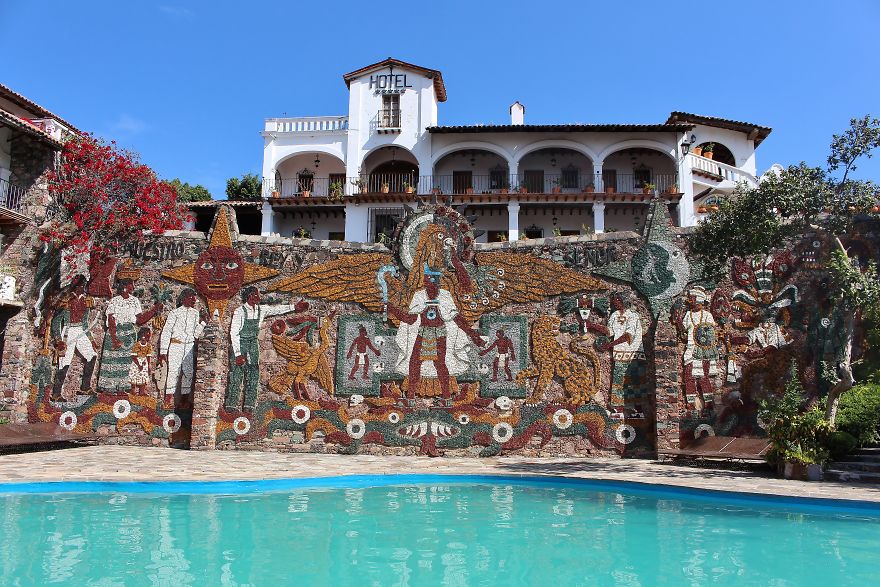
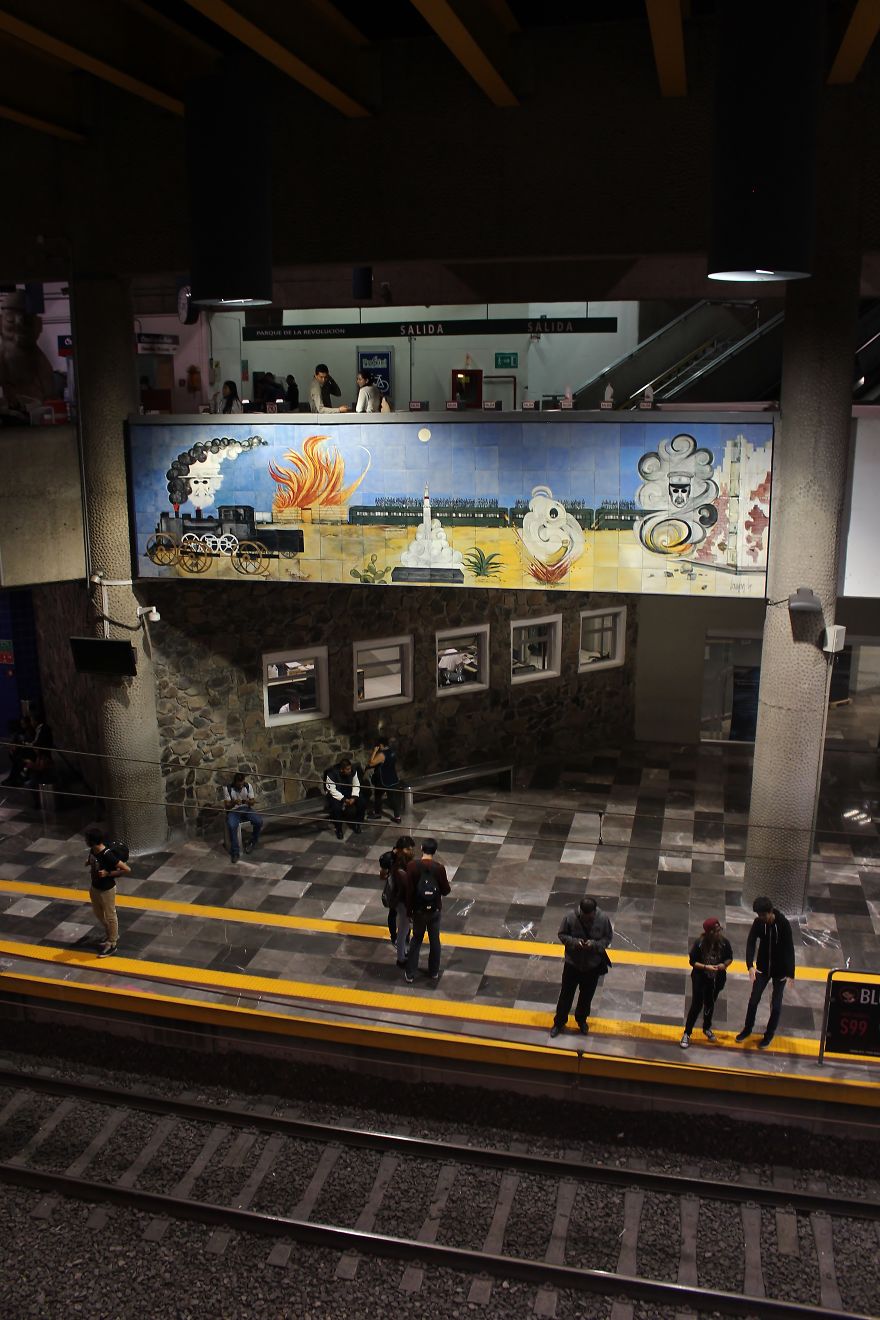
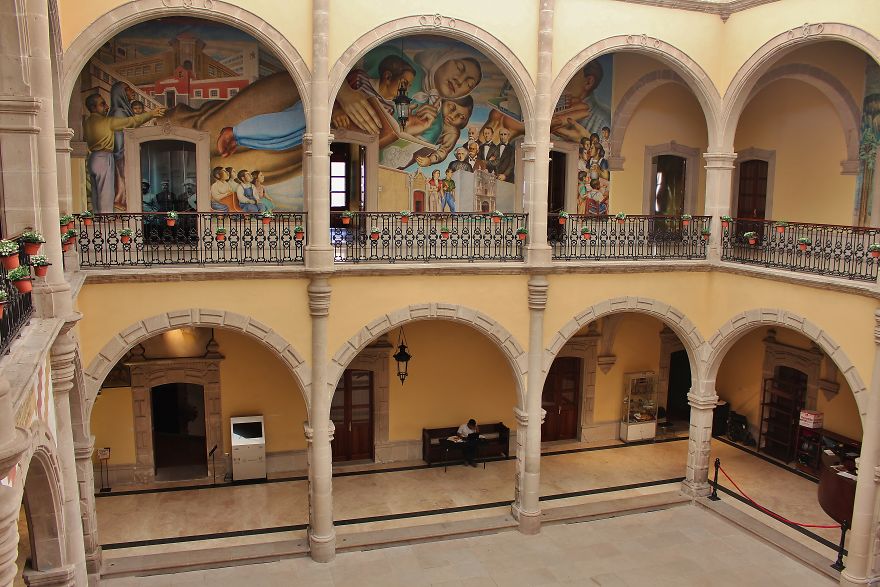
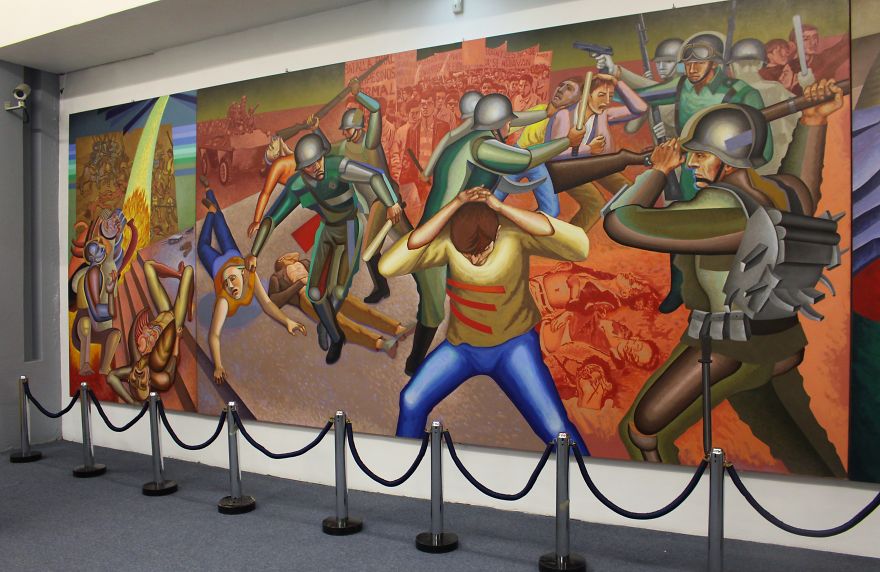
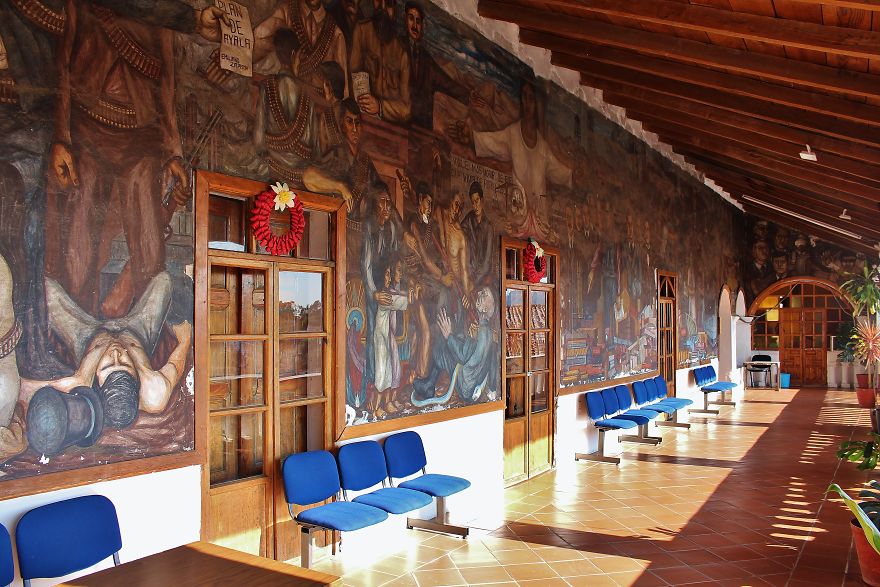
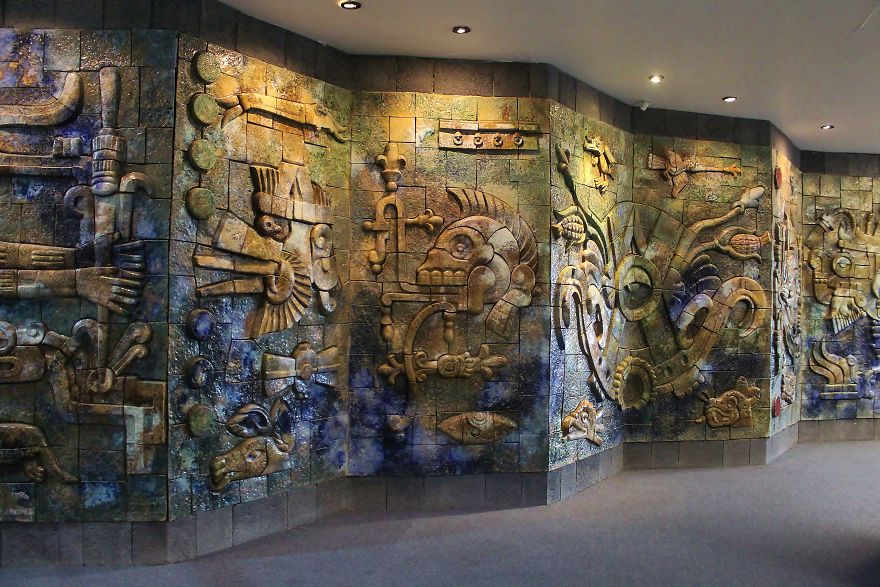
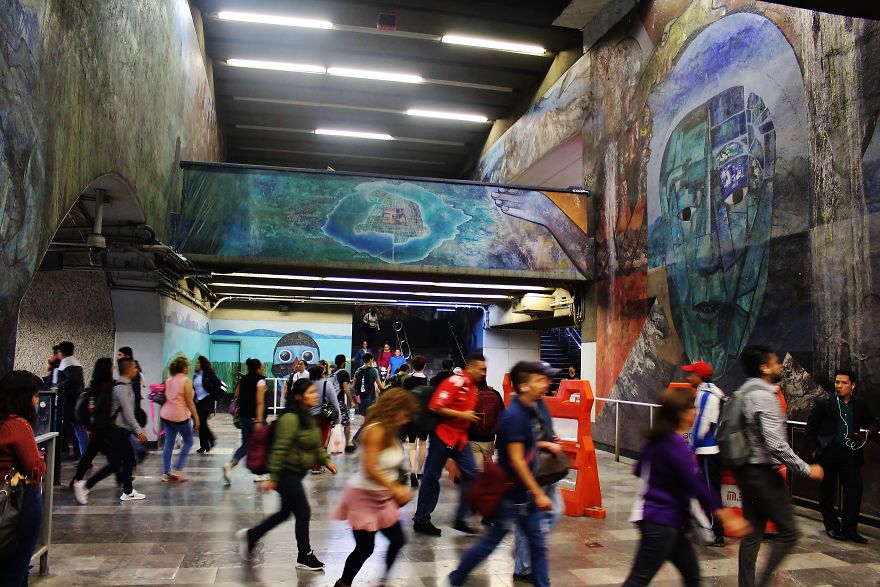
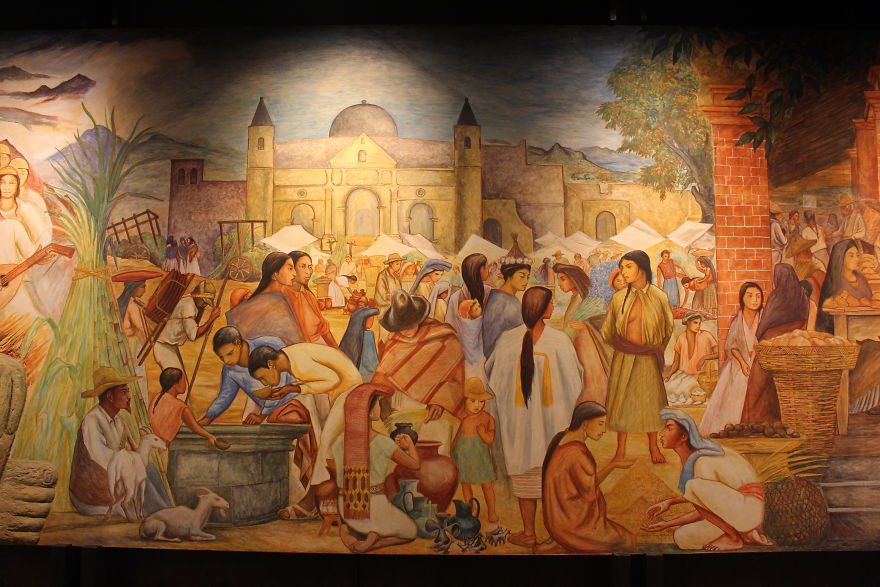
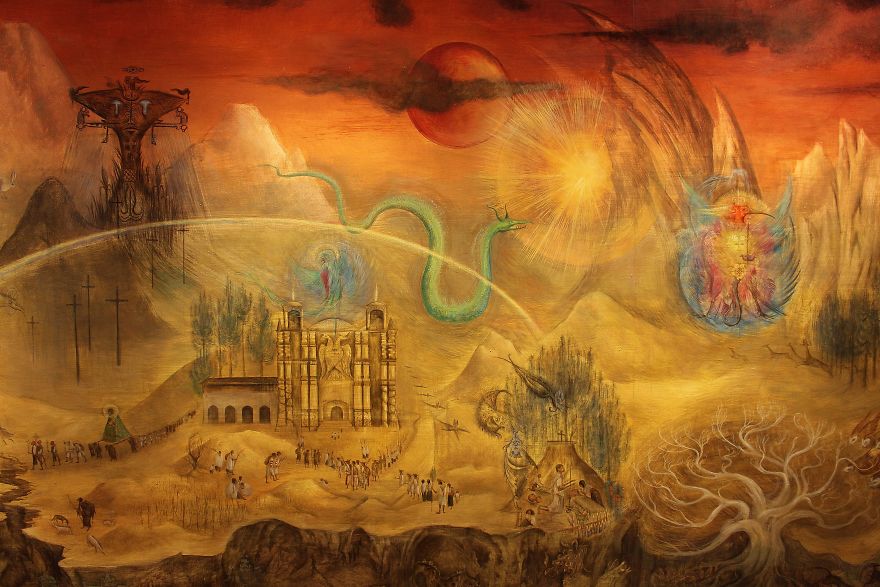
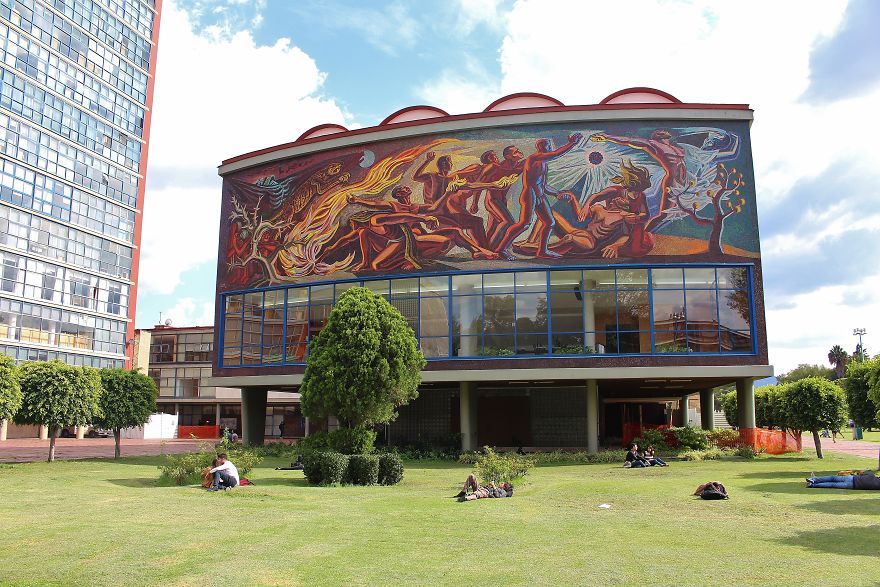
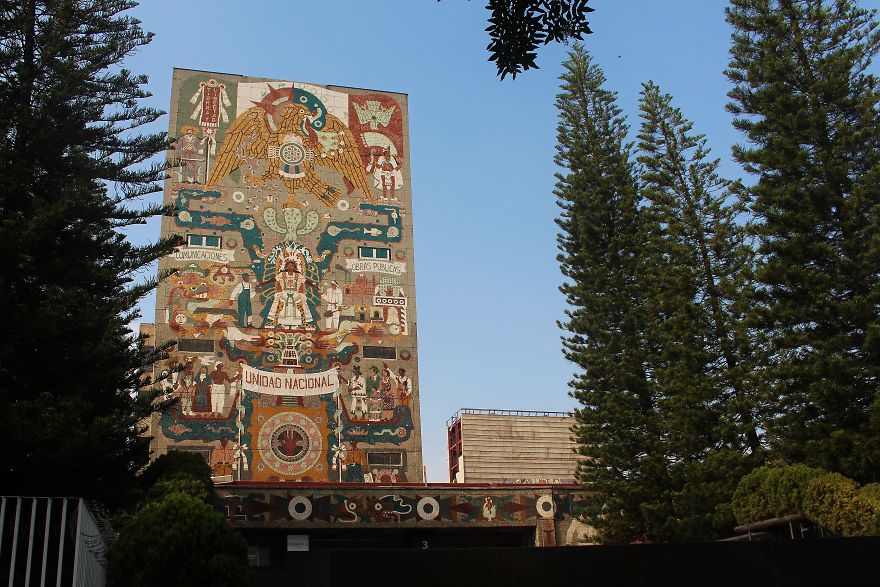
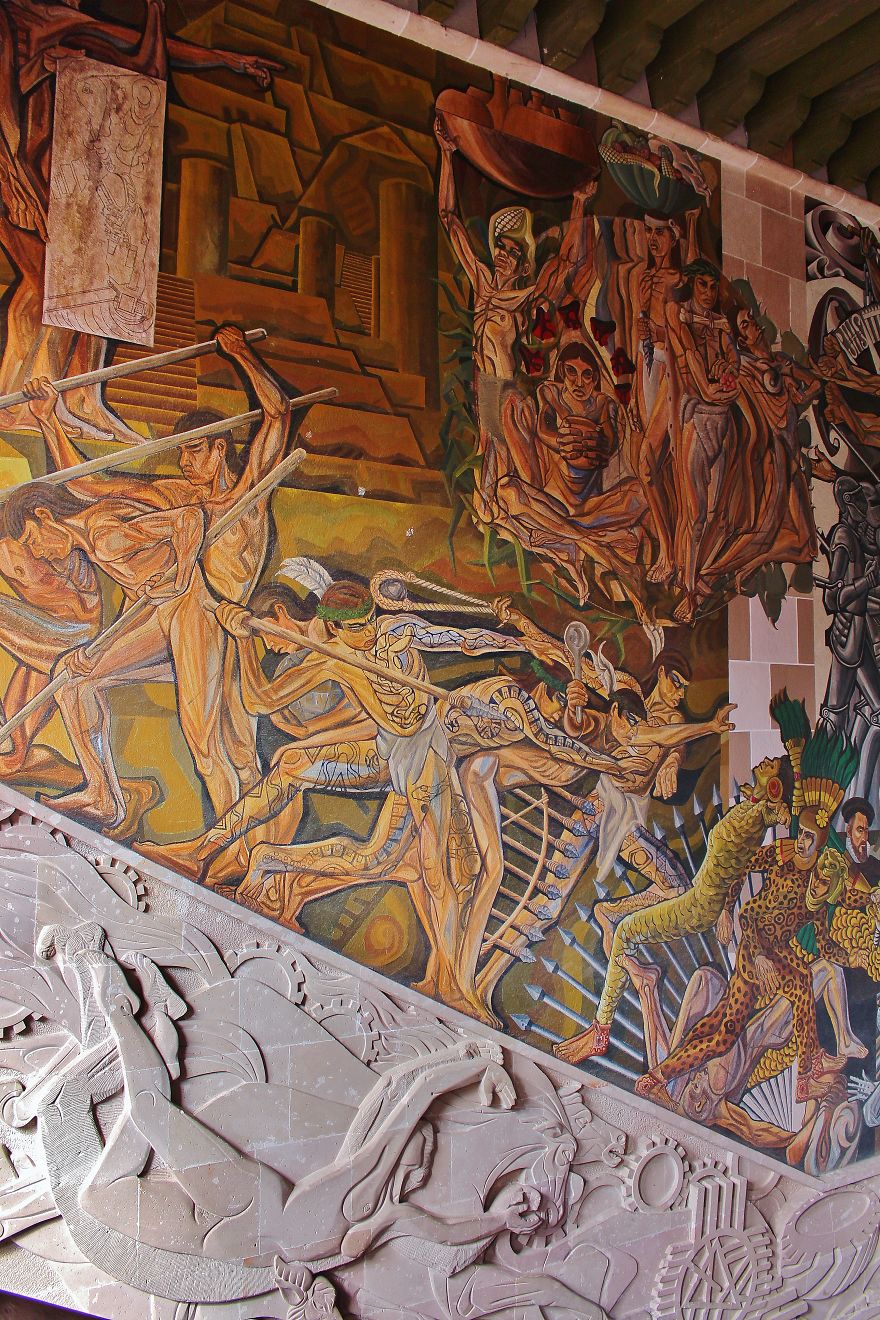
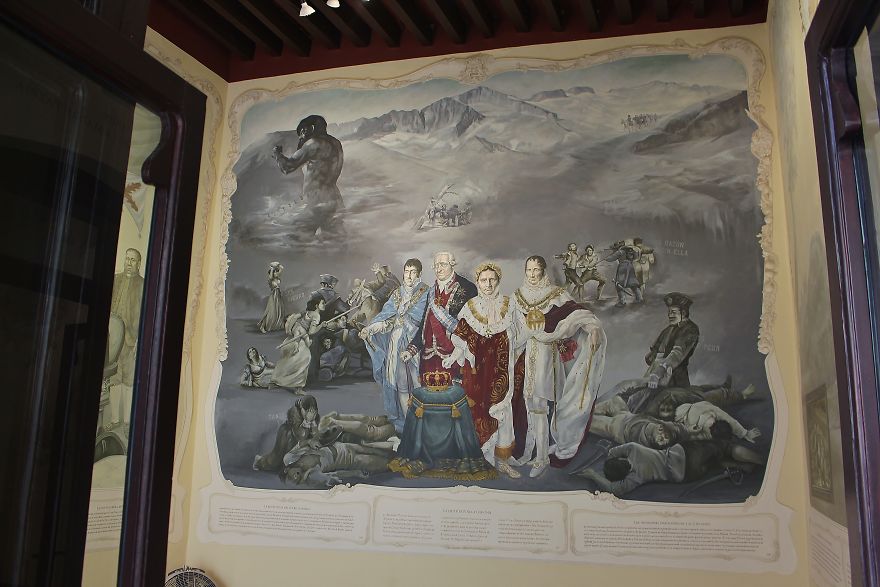
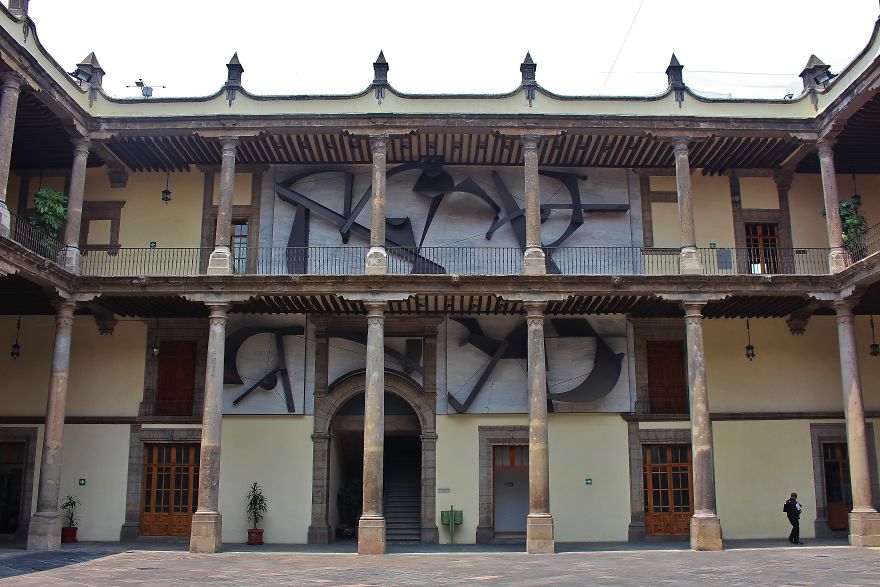
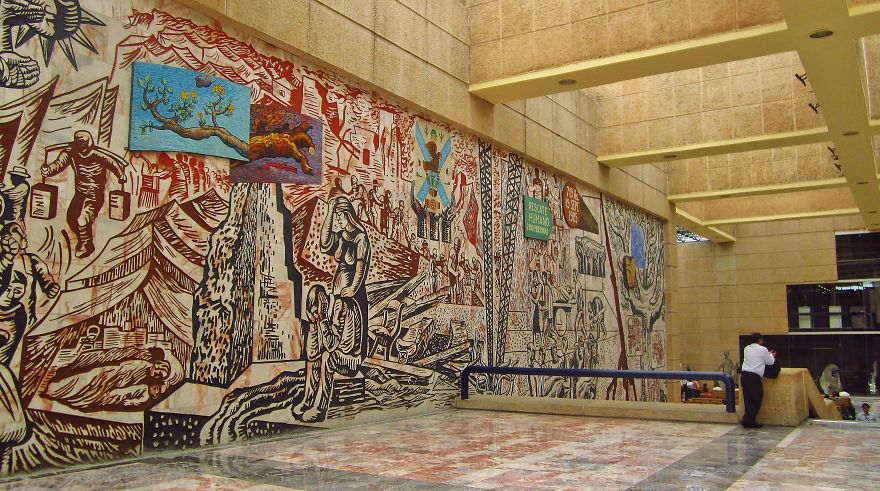
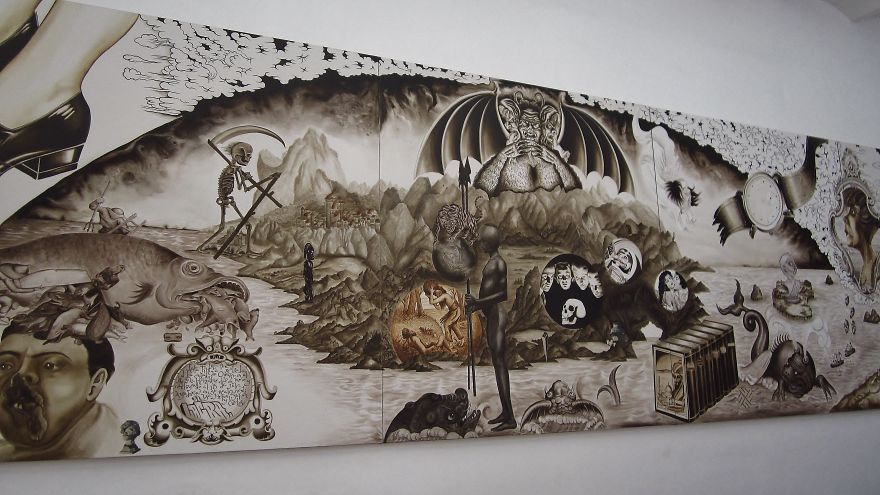
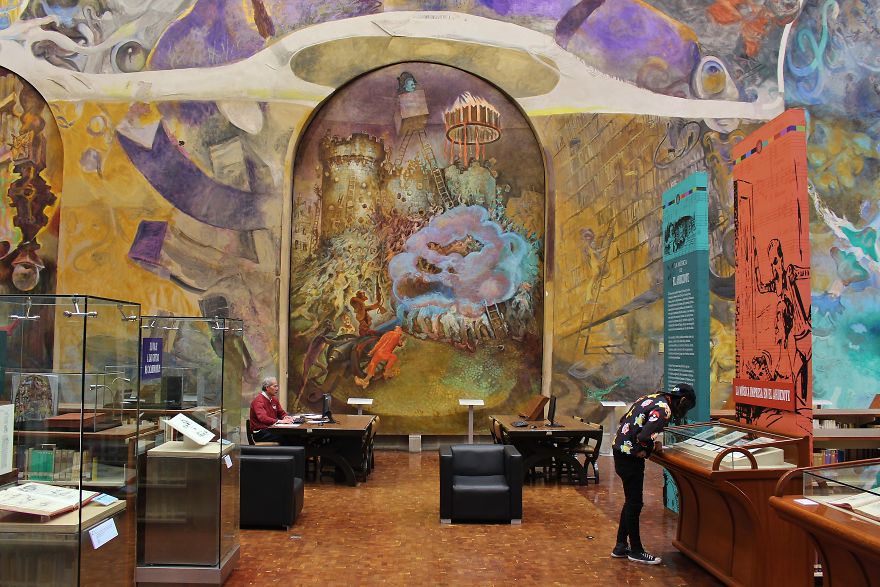
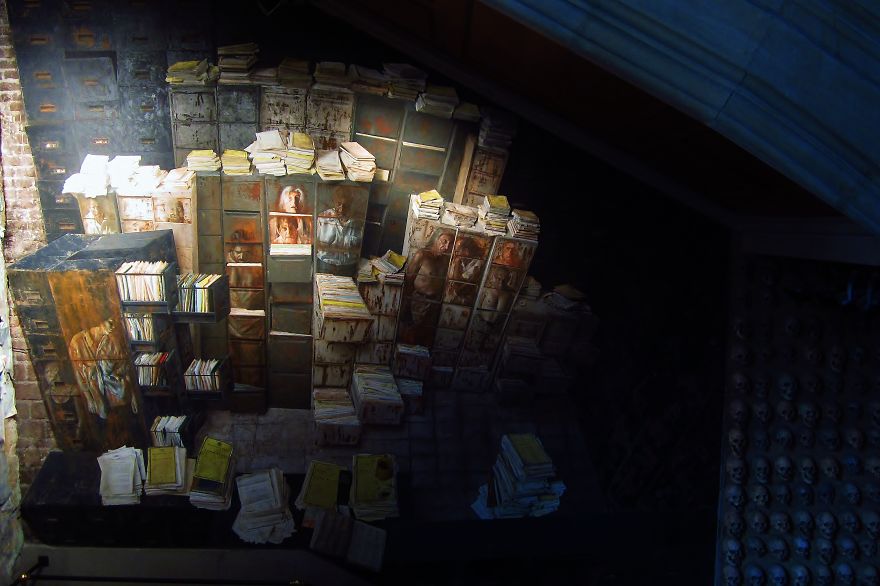
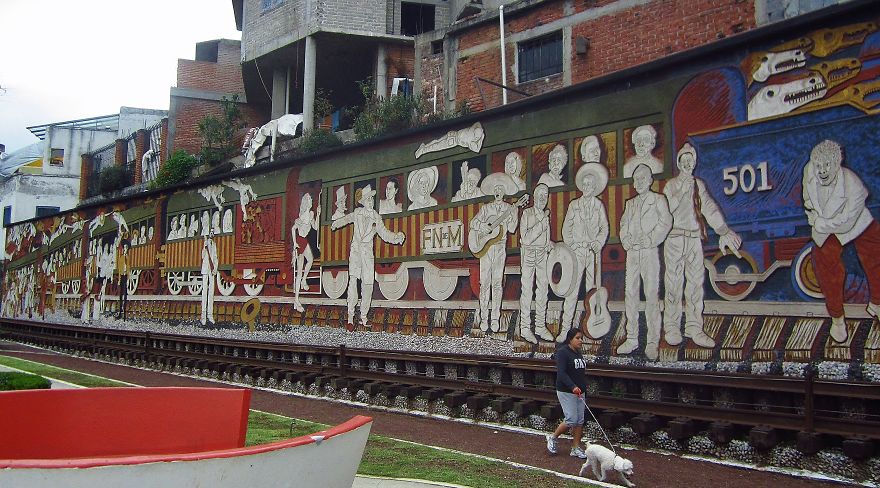
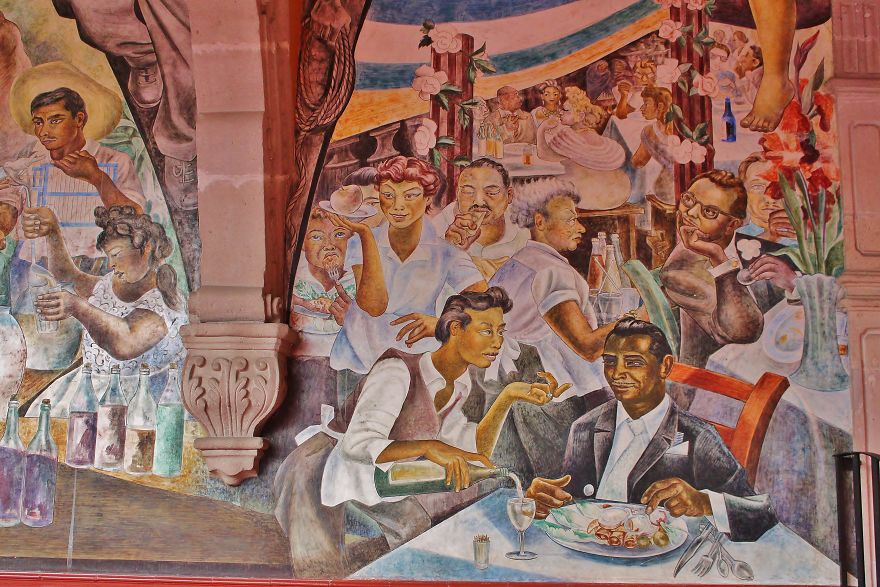
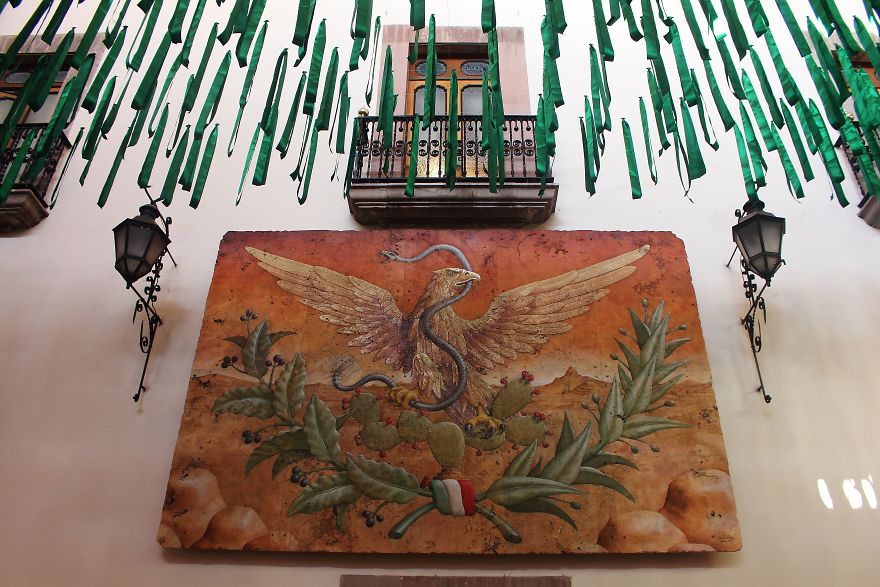
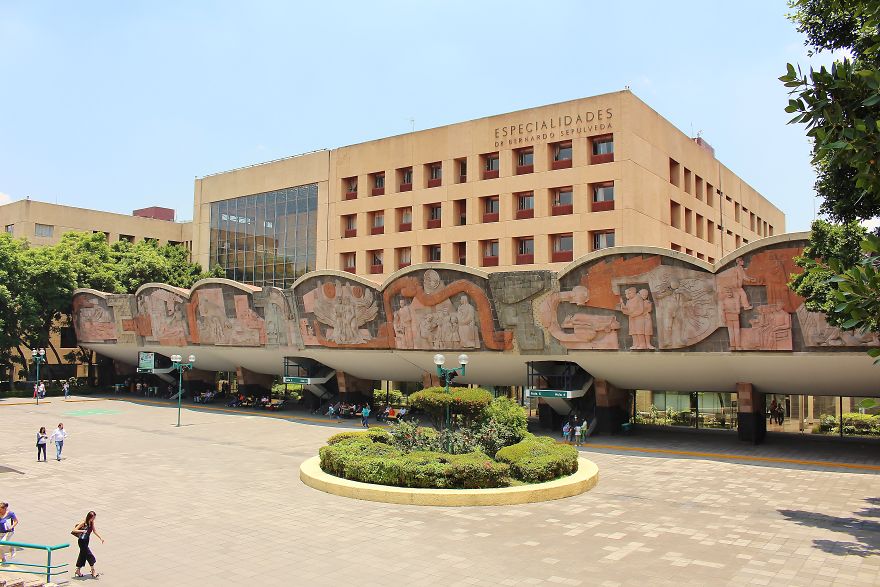
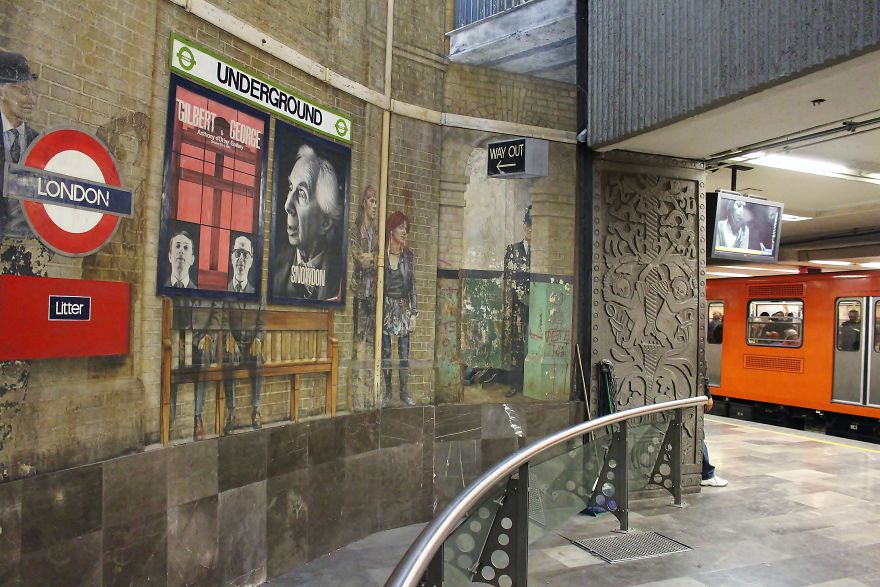
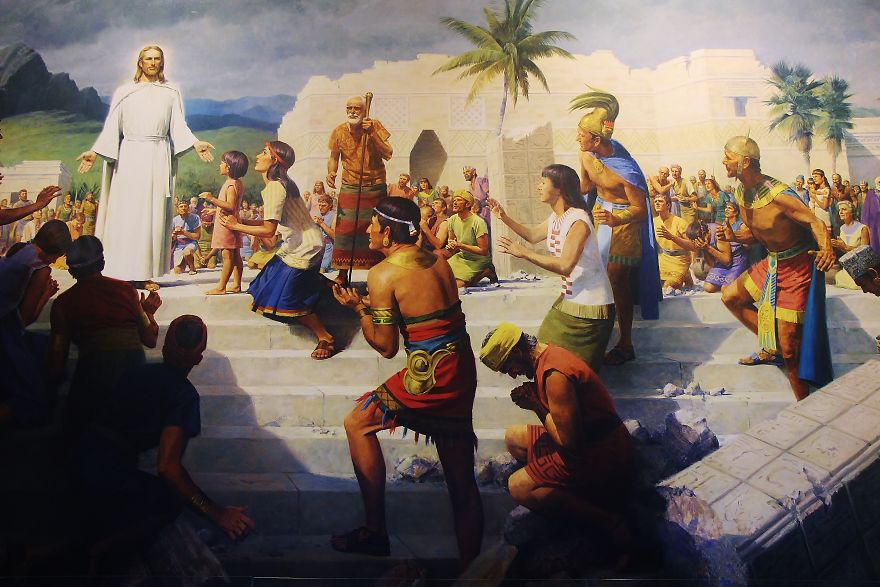
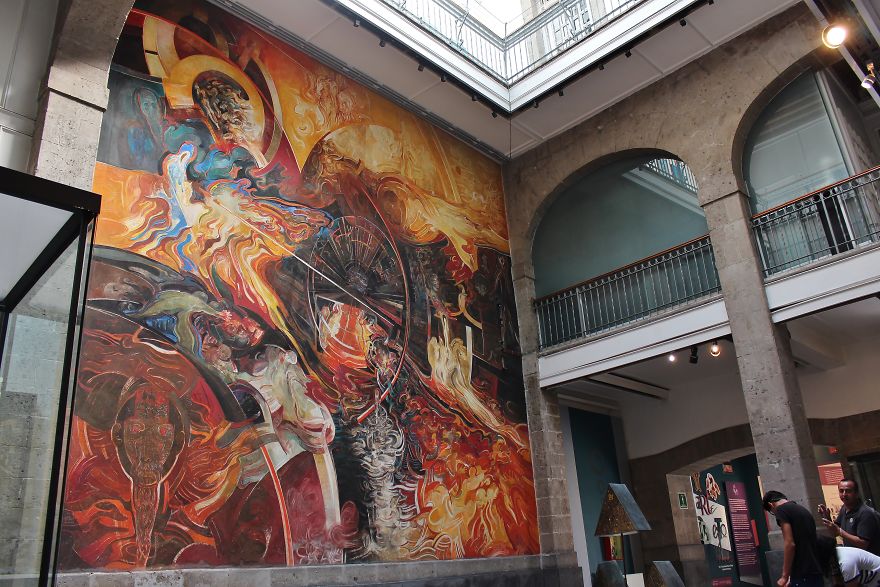
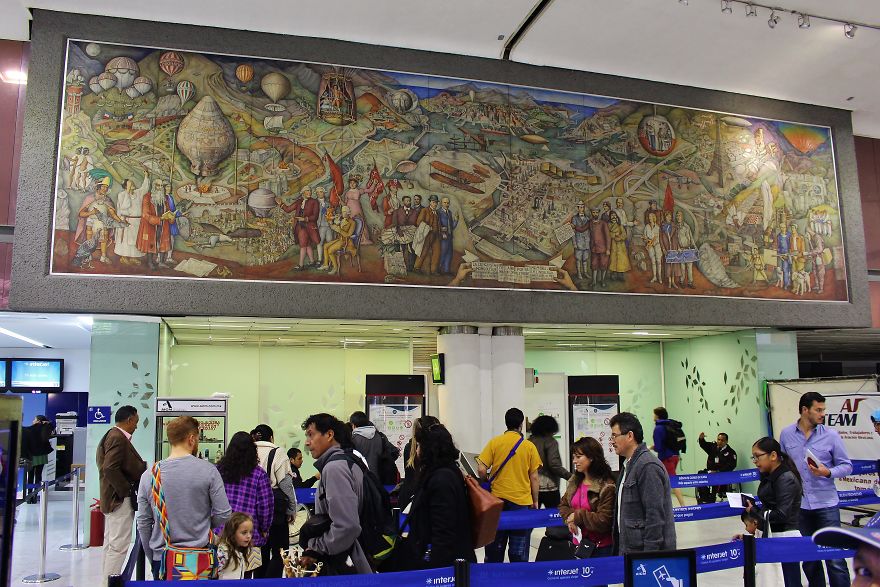
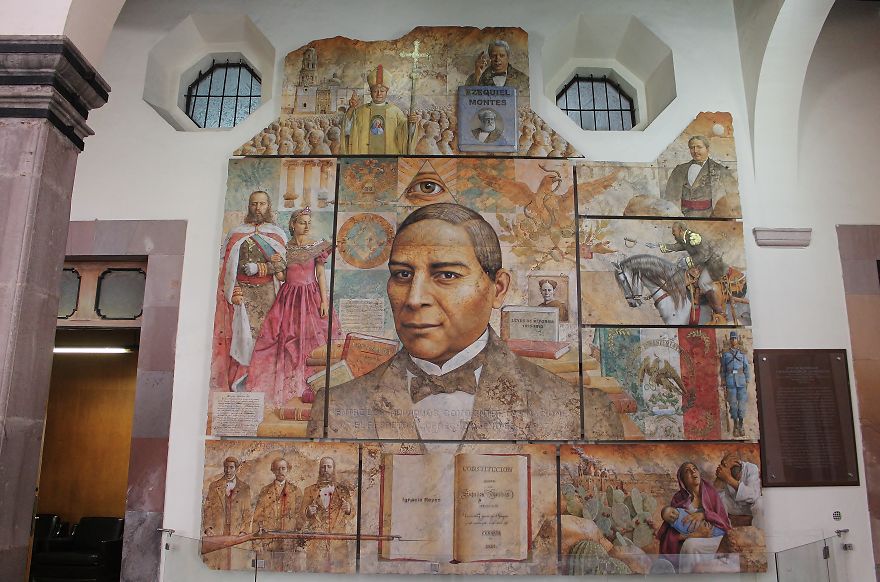
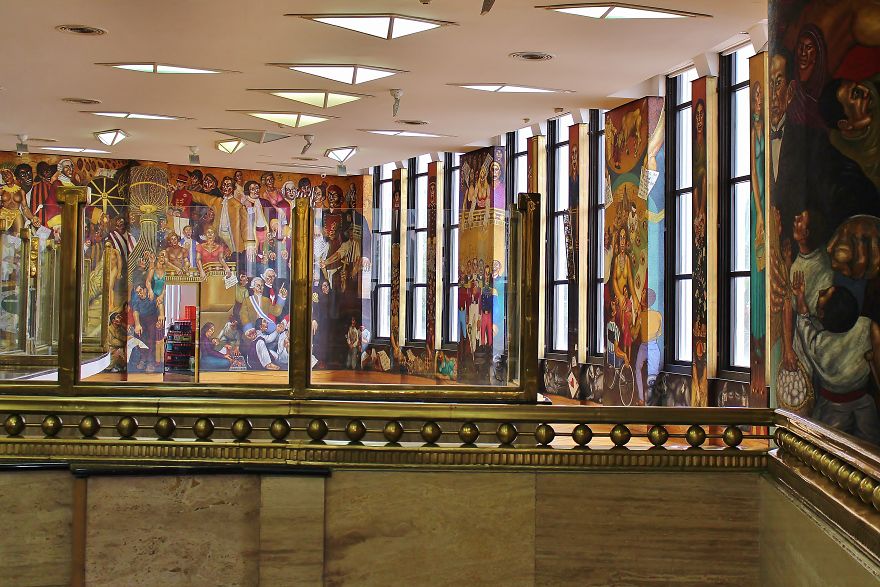
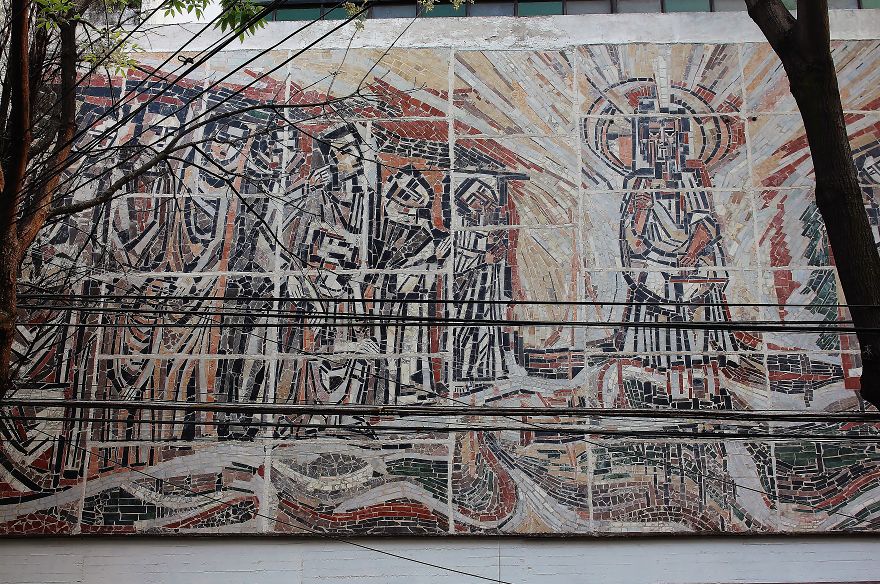
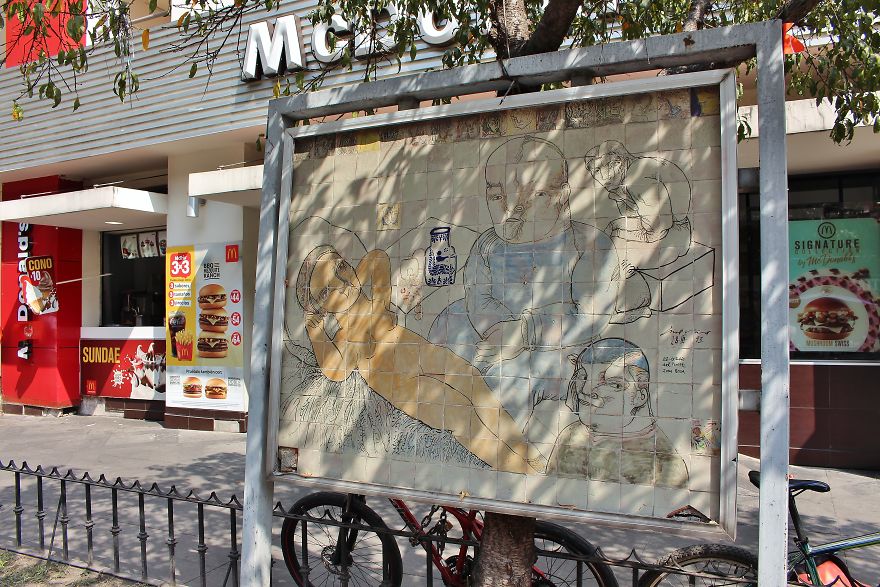


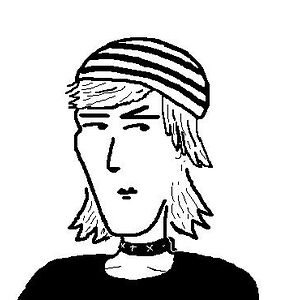









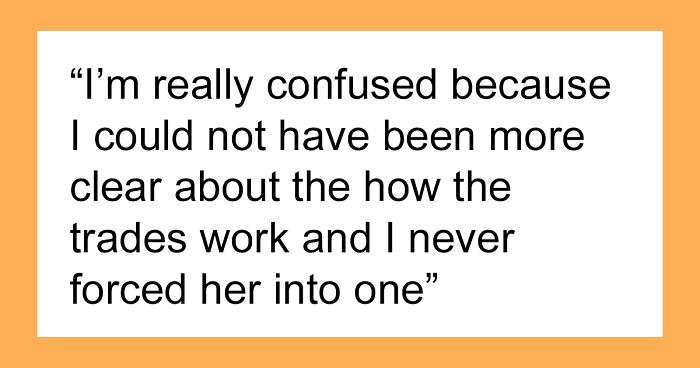
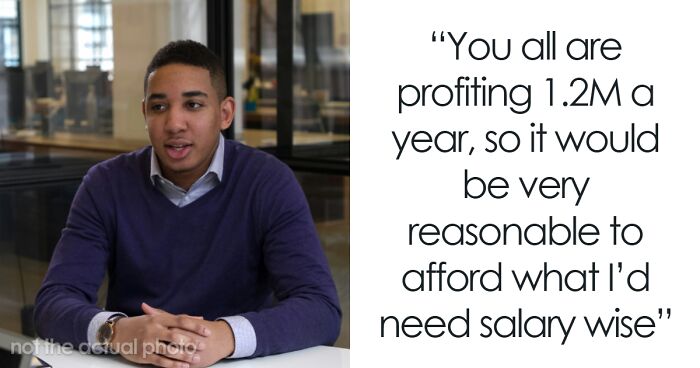
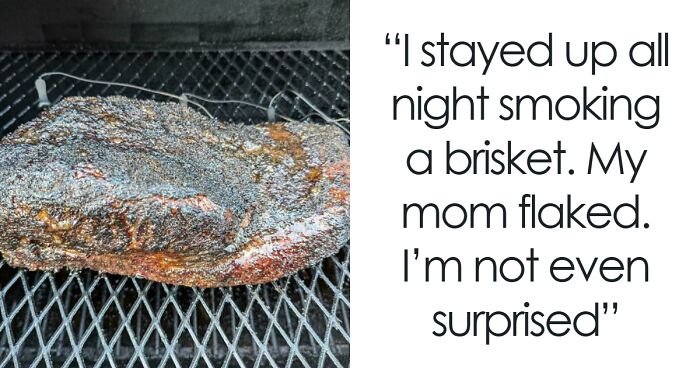











3
0